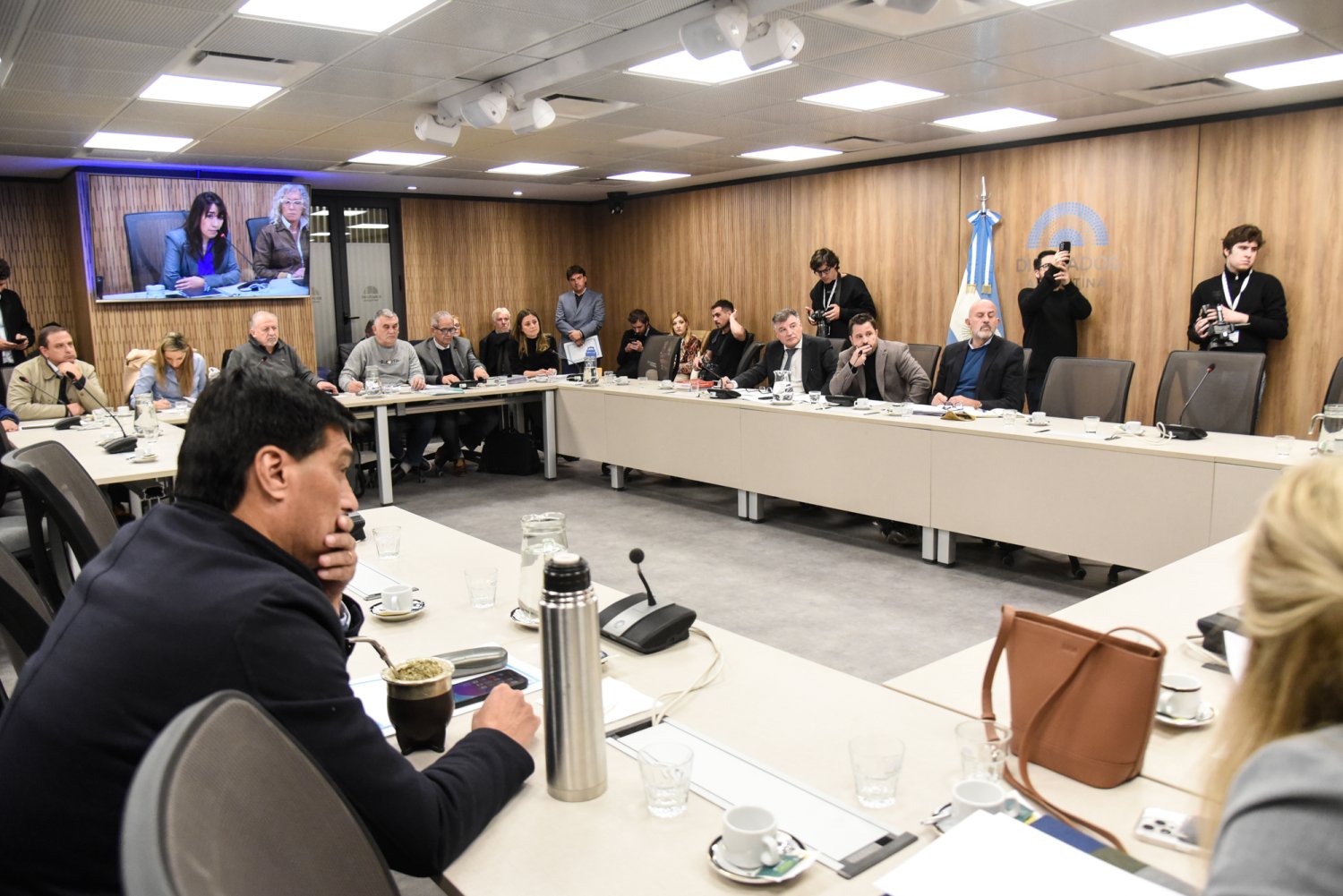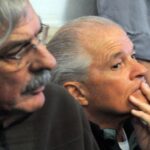
At the proposal of the president of the radical Martín Tetaz, a total of 28 projects were put up for debate this Tuesday in order to modify laws 14.250 and 23.551 that regulate collective labor agreements and union associations, respectively. UP and the Left Front questioned the agenda. Alejandro Vilca (PTS-FITU) demanded that the “pro-business agenda” be abandoned and demanded that the issues that concern the great majority be addressed, such as layoffs, suspensions and poverty wages. He also denounced that in the commission “issues such as the reduction of the working day were being worked on, which was already ready to be decided, and by private agreements, between some deputies, it was decided to change the agenda.”
Before starting the meeting, the deputy from Jujuy also presented a note that was accompanied by legislators from different blocks, requesting that the president of the Commission, Martín Tetaz, request urgent reports from the National Labor Secretariat regarding the Intercosecha program because – he said – it has not been paid for more than 4 months to the detriment of families who have no other means of support to survive. “Now they say they are going to pay, but we do not know when, or in how many provinces, or to how many workers or for which harvests,” he claimed.
“Given the seriousness and structural nature of this problem, we also demand that our project for the Creation of the Inter-Harvest Program for seasonal rural workers, and all other projects on the subject, be included in the Commission’s agenda,” said Vilca, and stressed that a “definitive solution” is needed to the situation faced by rural families.
Minutes ago we submitted a request to the authorities of the Labor Commission of the Chamber of Deputies to request information from the national Executive Branch on the worrying delay in the payment of the Inter-Harvest Program benefit to rural workers in Jujuy.
(Continue +) pic.twitter.com/ZxX35wh7DR— Alejandro Vilca (@vilcalejandro) August 13, 2024
New attacks on trade union freedom and the right to protest are being prepared
In turn, the radical Martín Tetaz presented the agenda with which he had called for the meeting on Tuesday. He explained that many of the proposed projects “have to do with the number of periods that a union representative can be elected; the form of election; the participation of minorities; the freedom of social work; the forms of financing of unions including the discussion on union dues; some linked to tax issues. Others have discussion of the participation of the bodies that have to do with gender issues.” He also said that next Tuesday 20 there will continue to be “informative” meetings with presentations by all the deputies who are authors of the projects related to these issues.
But all attempts to present the reform they want to advance as democratic ended with the first author to speak. The radical Roxana Reyes, proposed modifying article 17 of Law 23.551, on the composition of the administrative and union leadership bodies: “We propose that it go from 5 to 9 members of integration or a multiple of three to guarantee the representation of minorities, provided that the minority has reached 25% of the votes cast,” she said. She also said that her project raises requirements such as the “clean union record” that disqualifies those who have “any conviction in the first instance” from holding office and added that the radicals will present “an addition” to this project that has to do with the fact that “those who hold office in the management or administration bodies of union organizations cannot simultaneously hold office in the national, provincial and municipal executive and legislative branches.”
This was perhaps the point that most bothered the union deputies of Unión por la Patria. The assistant secretary of SMATA Mario “Paco” Manrique, a deputy for this block, was thus one of those who questioned the radical deputy: “I want to know how the deputy believes that all these modifications will improve the quality of union democracy,” he said, and received as a response the data from a survey by the agency “Jacob y Asociados” which, according to Reyes, would show that Argentine unionism has a negative margin of 81.6%.
From the PRO, Verónica Razzini from Santa Fe took the floor to add that her bloc wants to complement the proposal with another measure: “I presented an anti-blockade project because today Argentina needs a law that gives a criminal figure to extortionate union blockades, which are organized by people who have a plan regarding this,” she said, and stressed that “we are looking for a criminal figure for this crime.”
Alejandro Vilca from Jujuy complained about the commission’s agenda and denounced that “we were working on the reduction of the working day and they move on to another topic as if nothing had happened. There are dismissals, suspensions and proposals that had been debated in this Commission. Now they are questioning the union dynamics and the right to workers’ protest, in an attempt by the Commission’s presidency to move forward with the pending points of the Law of Bases and the DNU 70/23 that they were unable to pass, leaving tens of thousands of families adrift who are left without support. It is a mockery,” he said.
Vilca denounced that with this agenda, the parties allied to the government are never laying the foundations for a new attack on the right to organize and protest of the working class, which has strikes, pickets, and blockades as some of its historic methods of struggle against employer attacks. While the plan for adjustment and the handover of the country’s resources is deepened, they are seeking to shield the employers with even more reactionary laws, disguised with pompous titles such as “union democracy.” Vilca, a worker leader of the harvesting industry and member of the Movement of Classist Groups, left the meeting and announced that from the Left Front “we will not give our endorsement to this reactionary agenda.”
Source: www.laizquierdadiario.com

